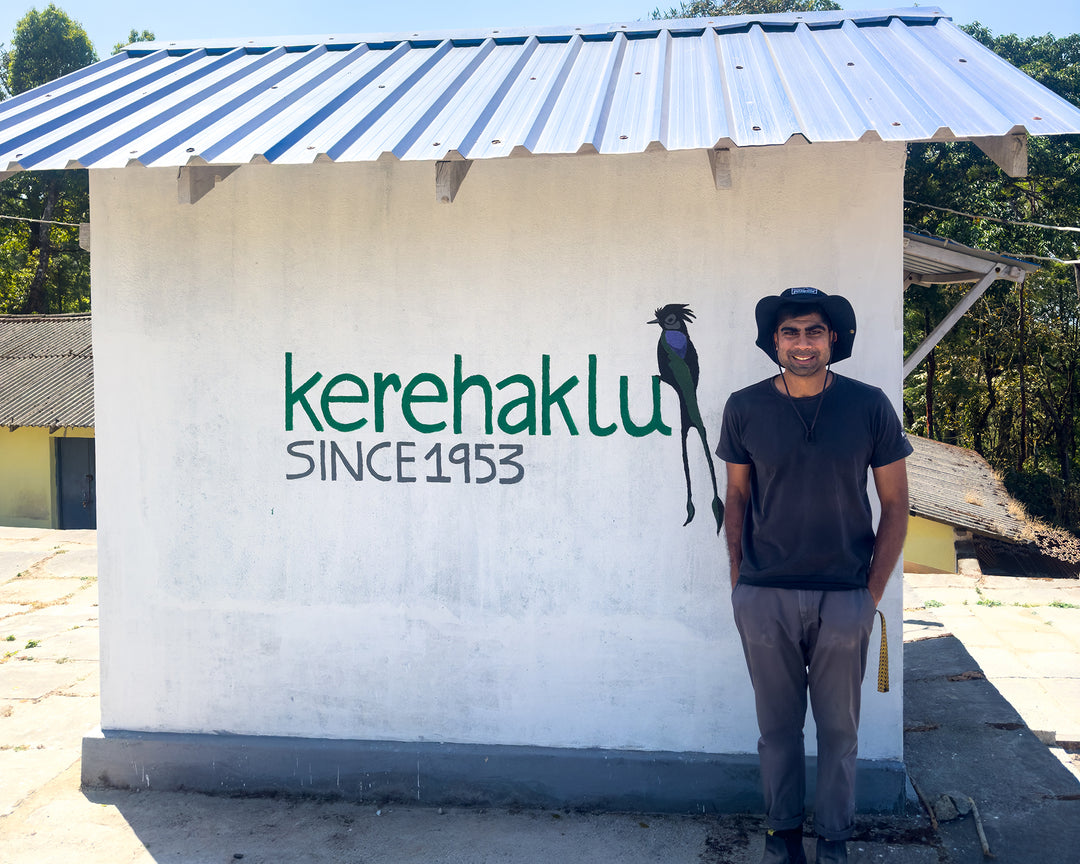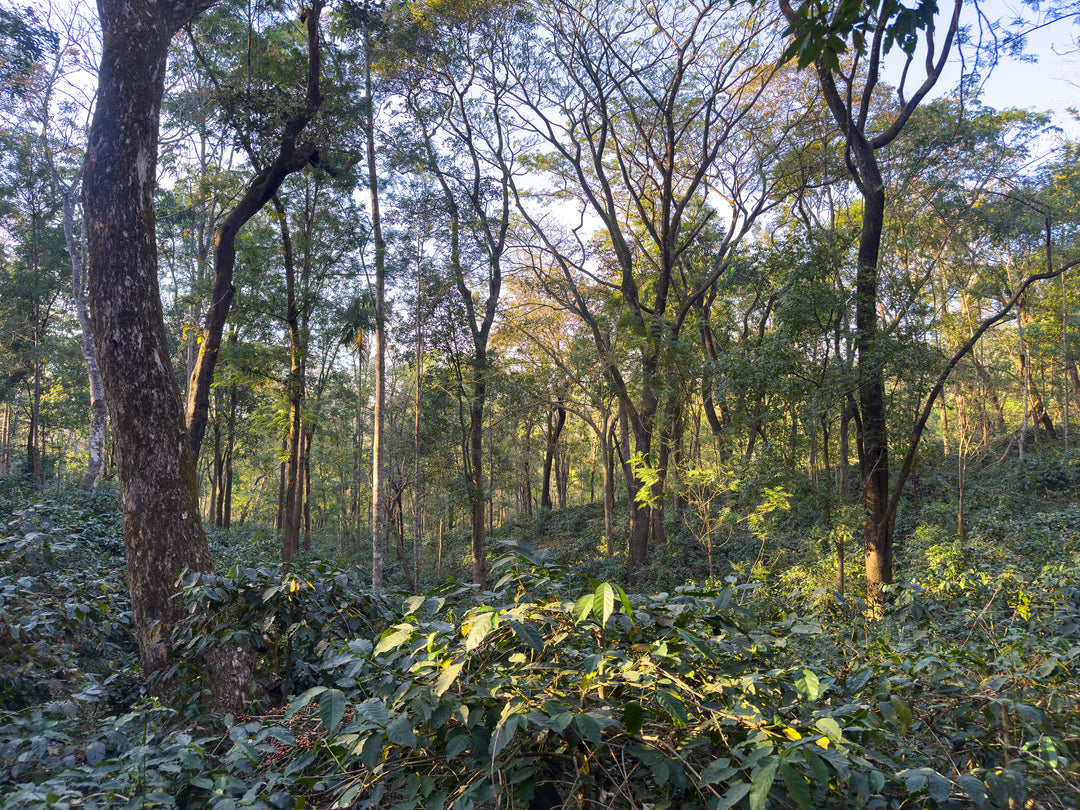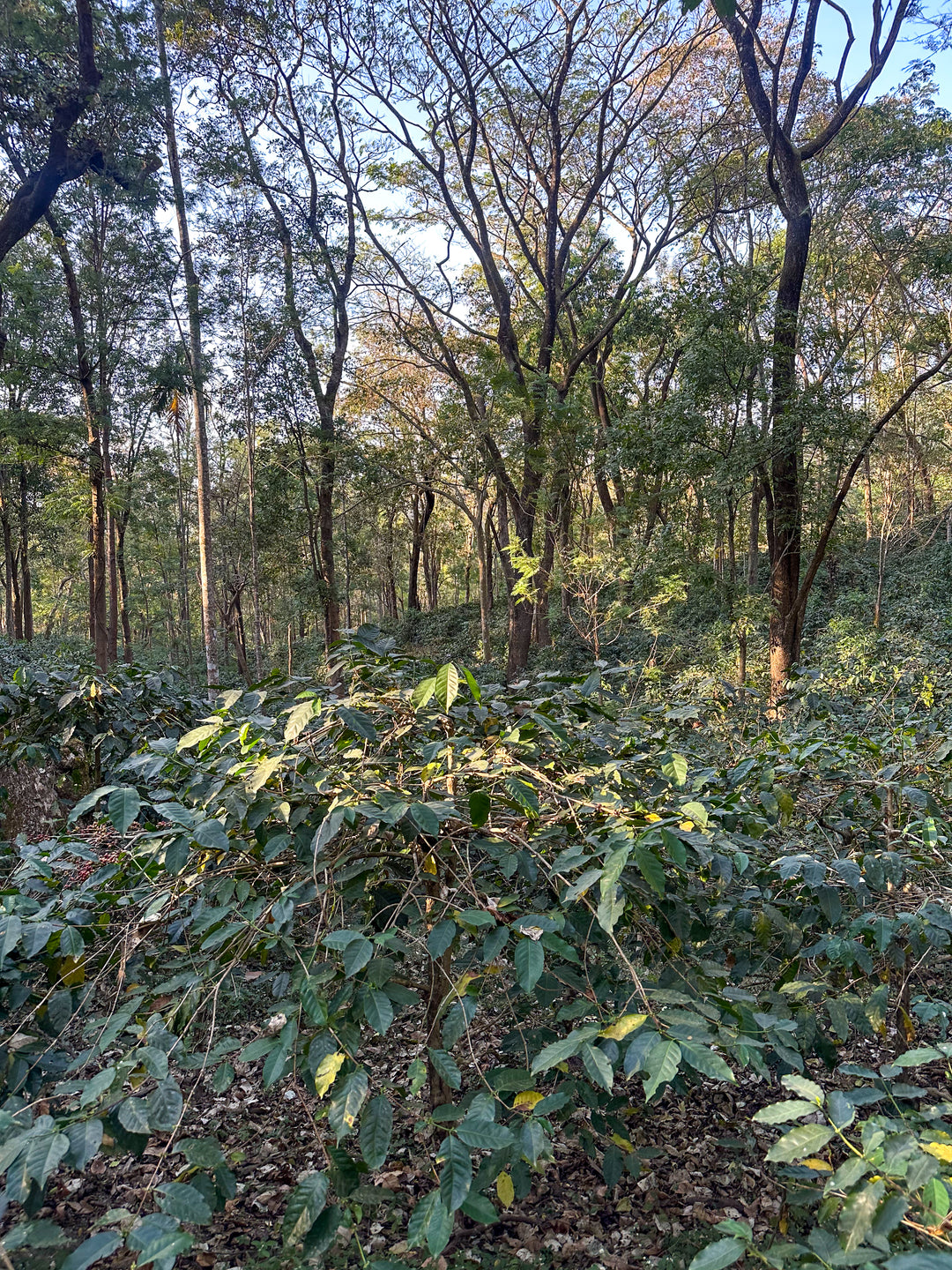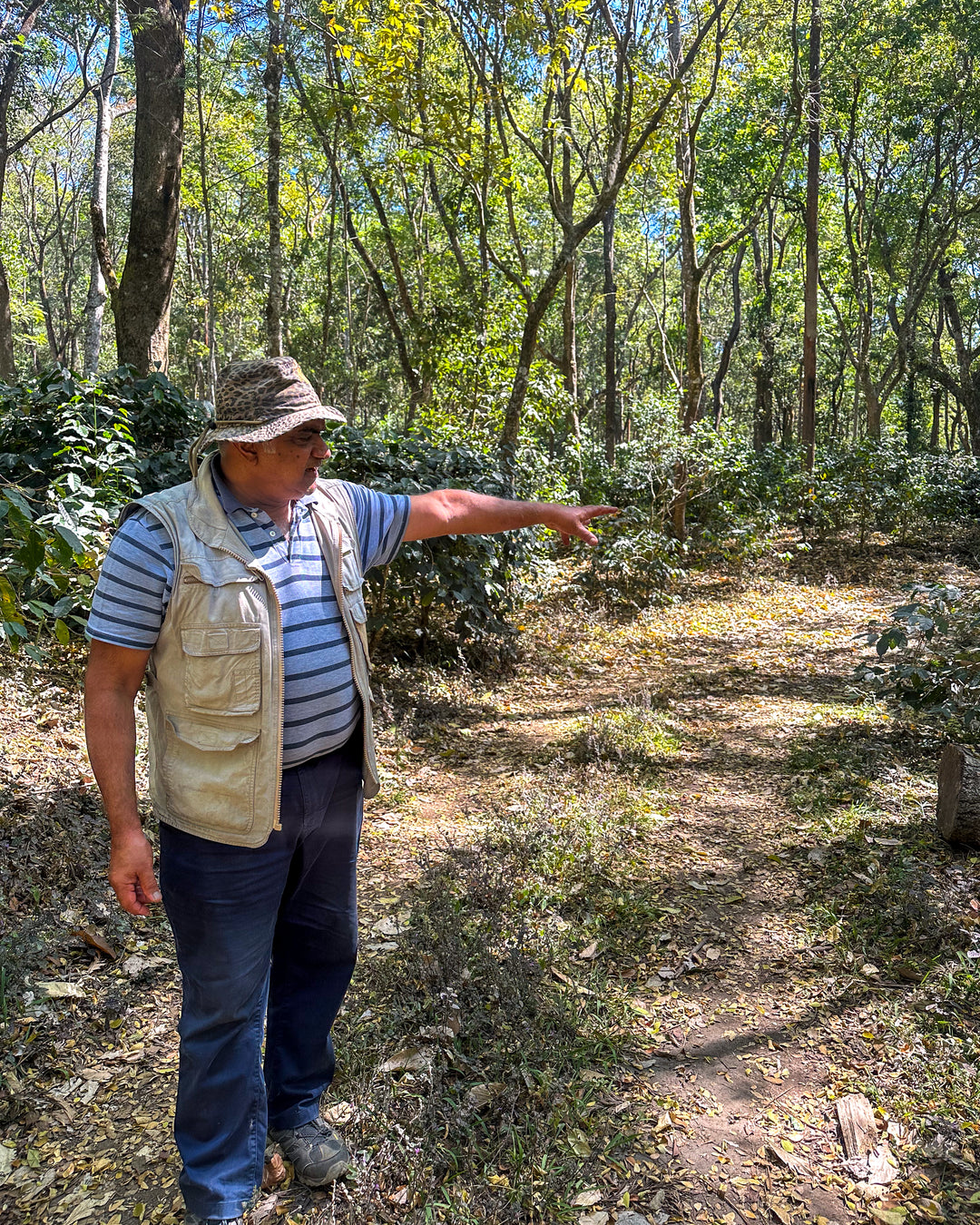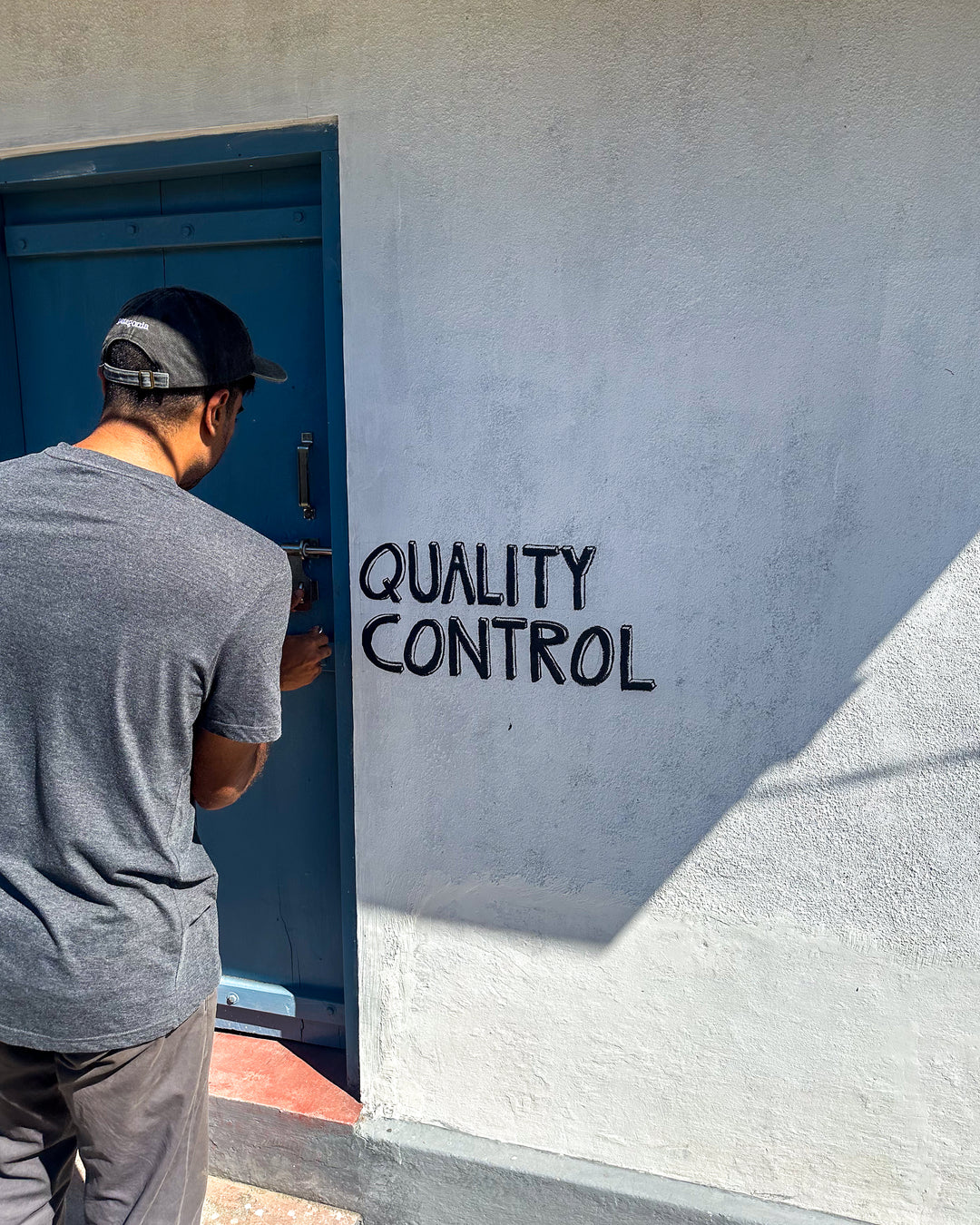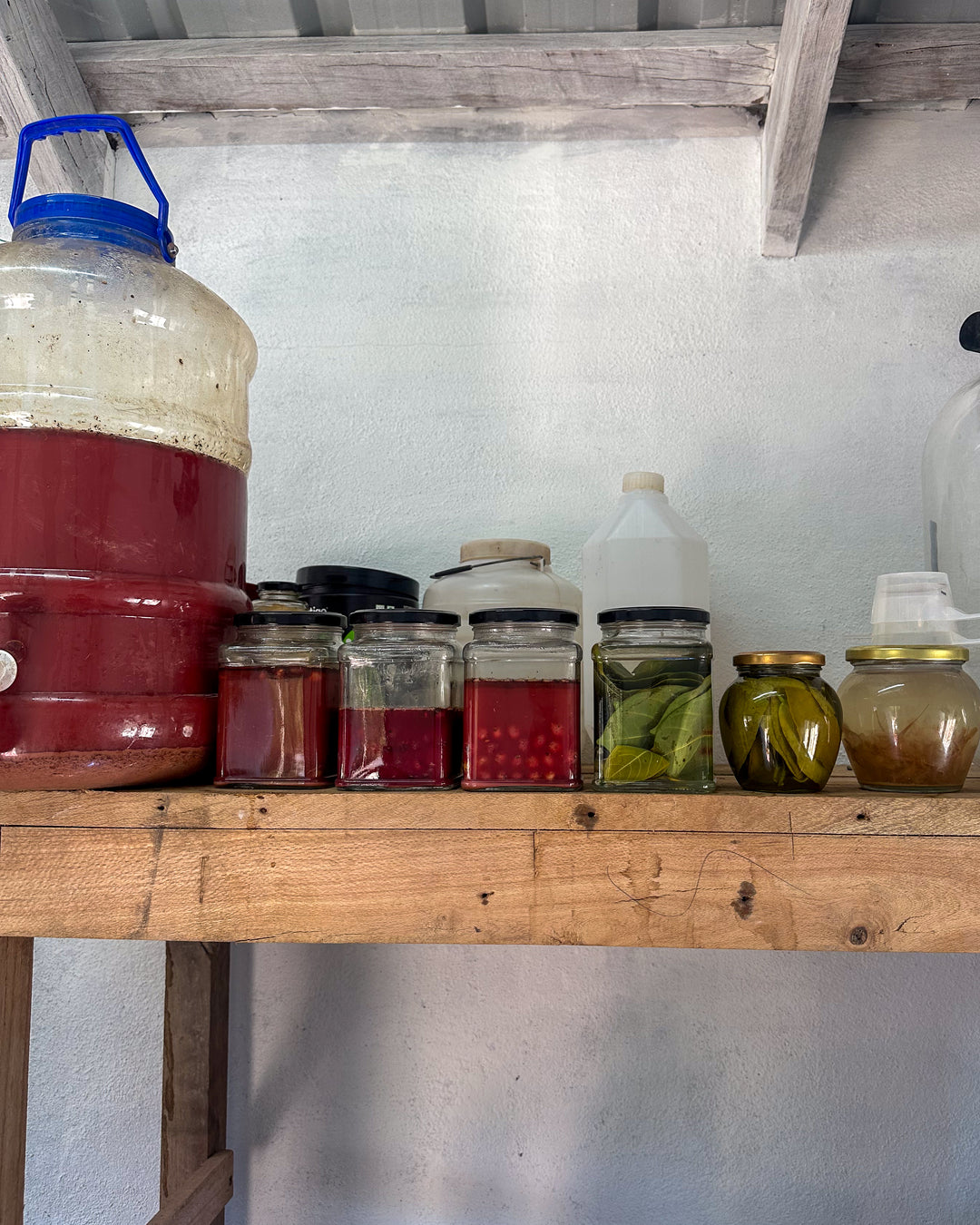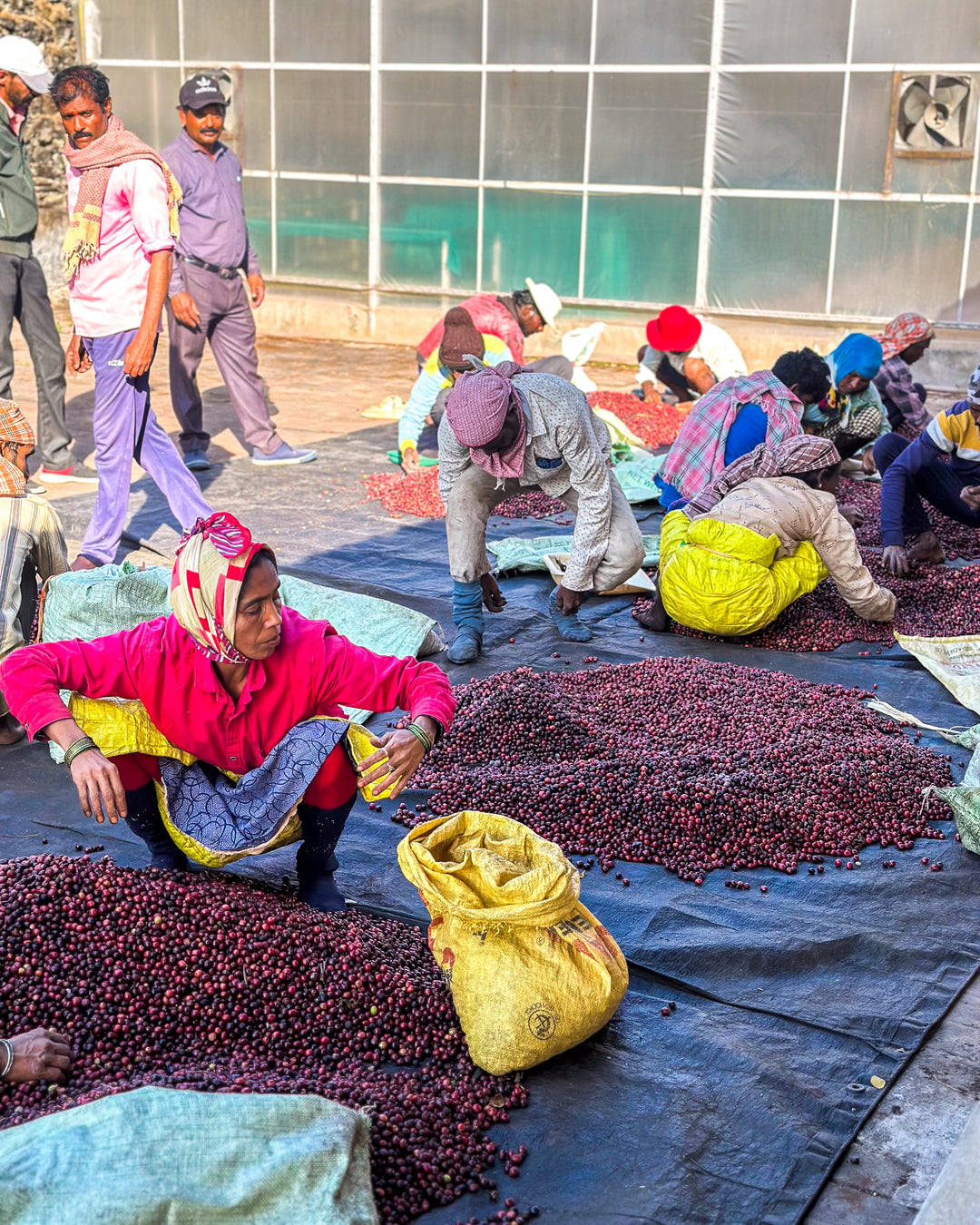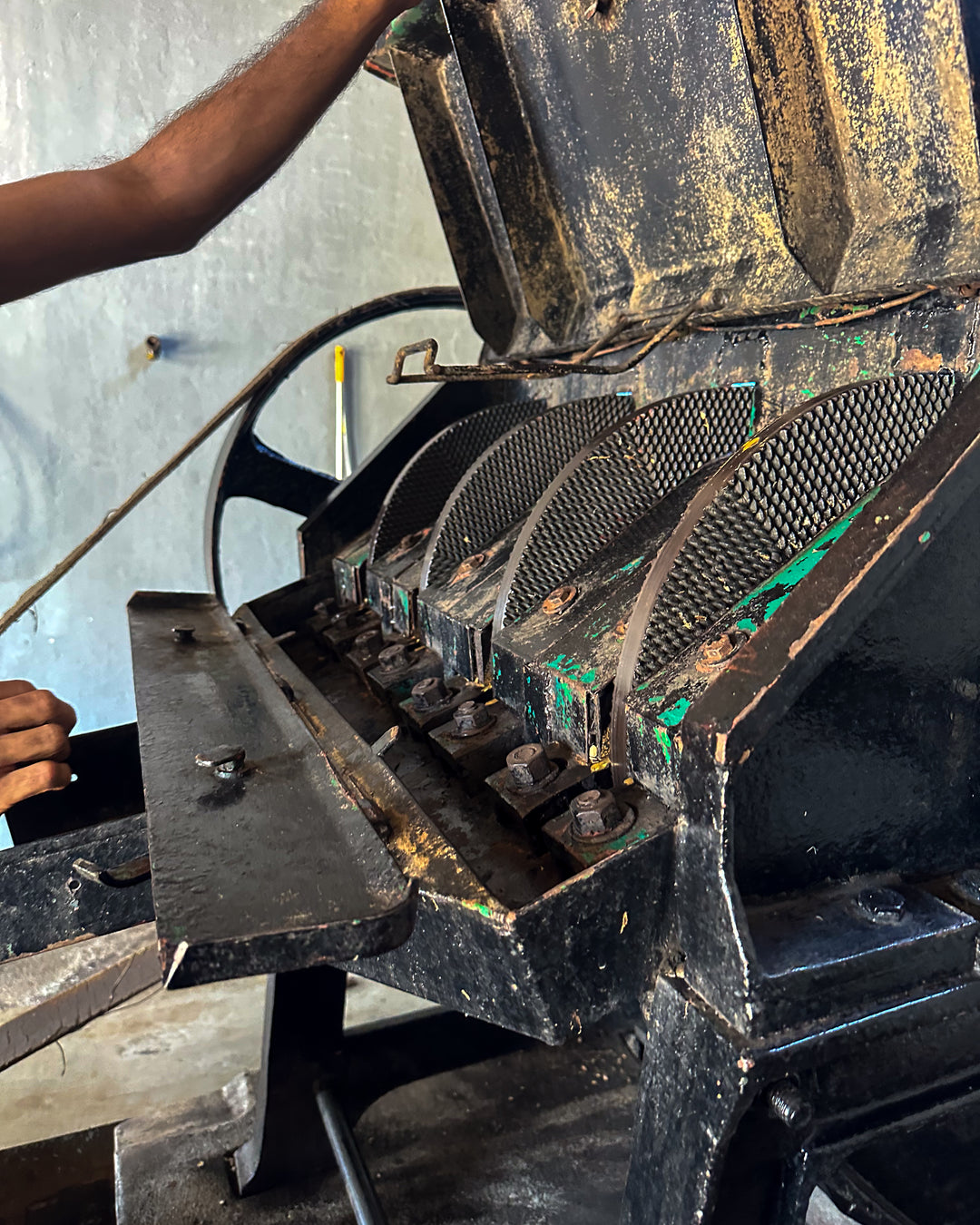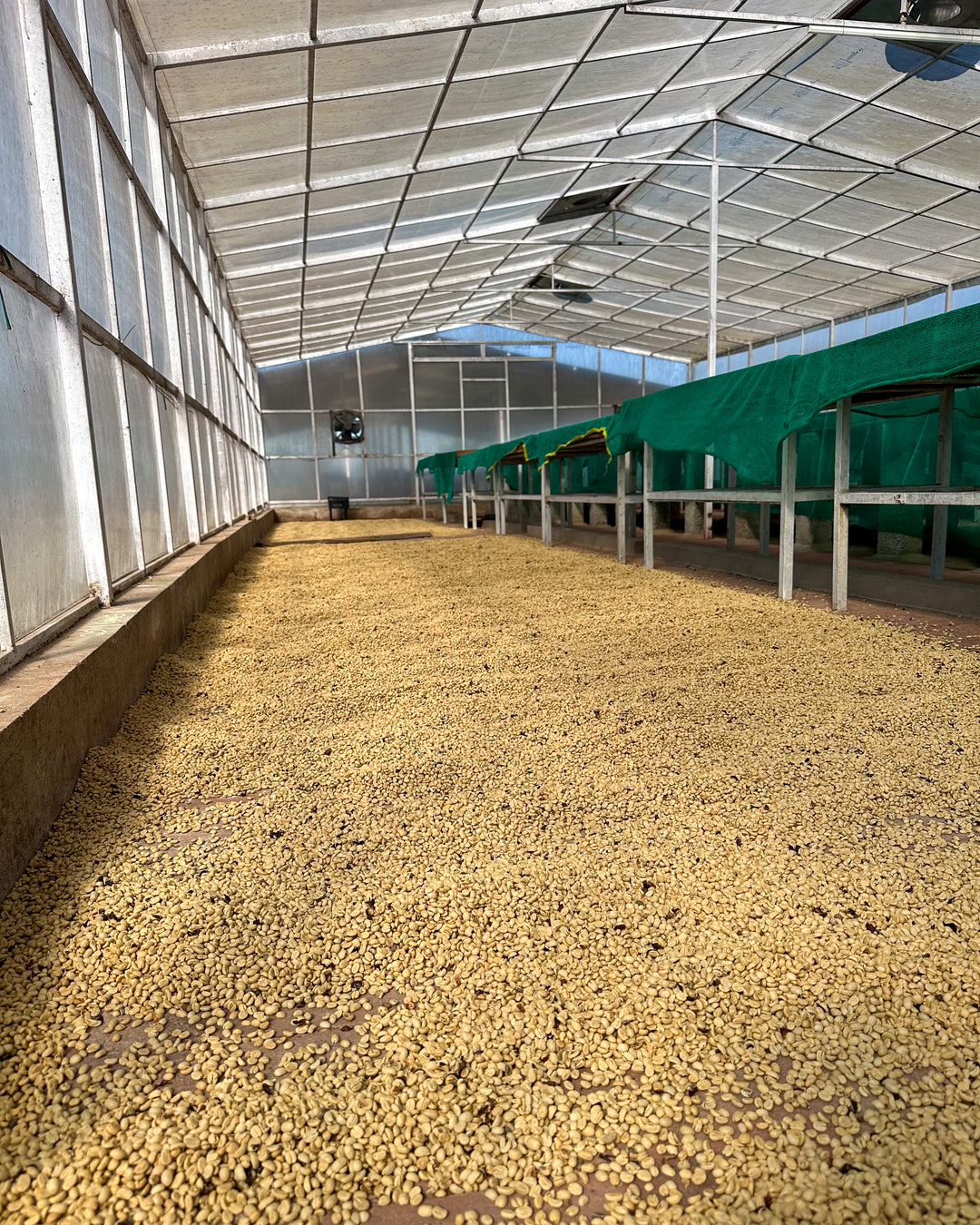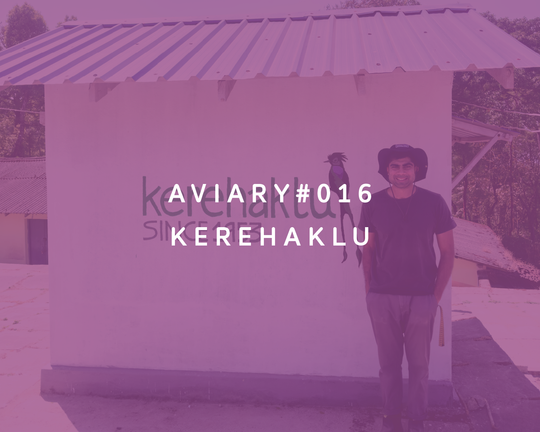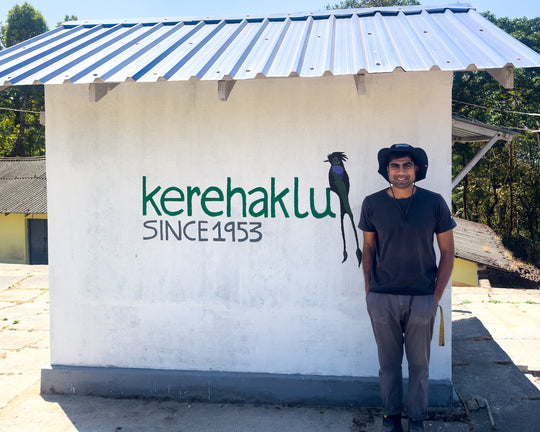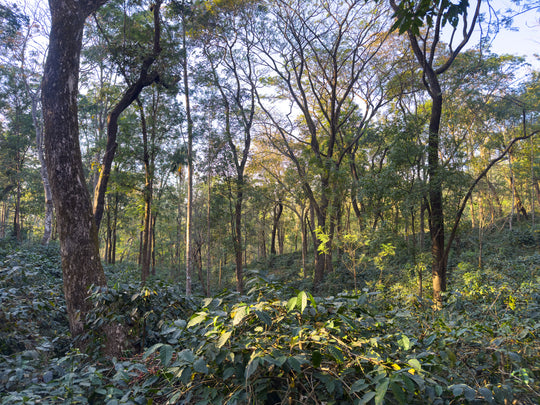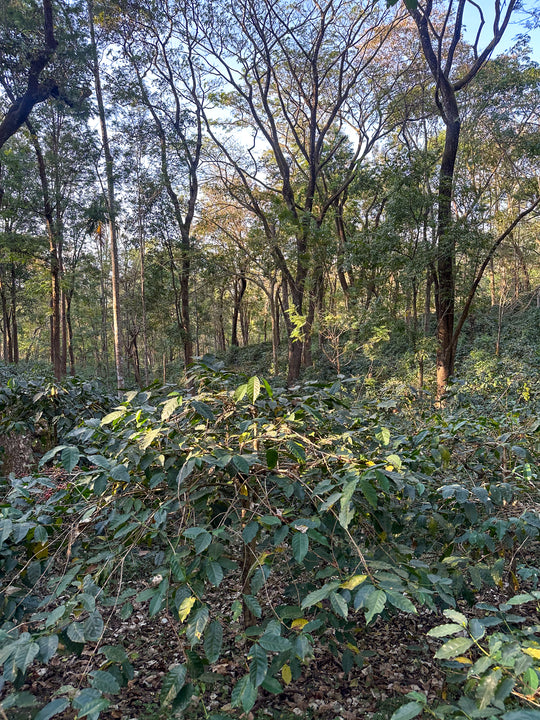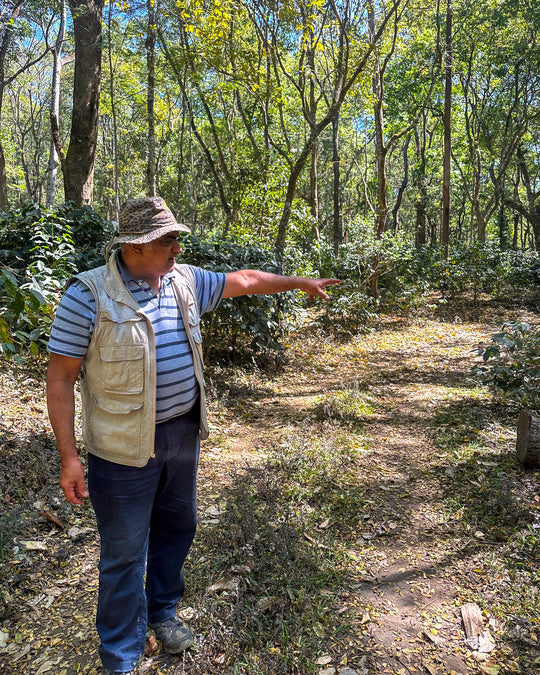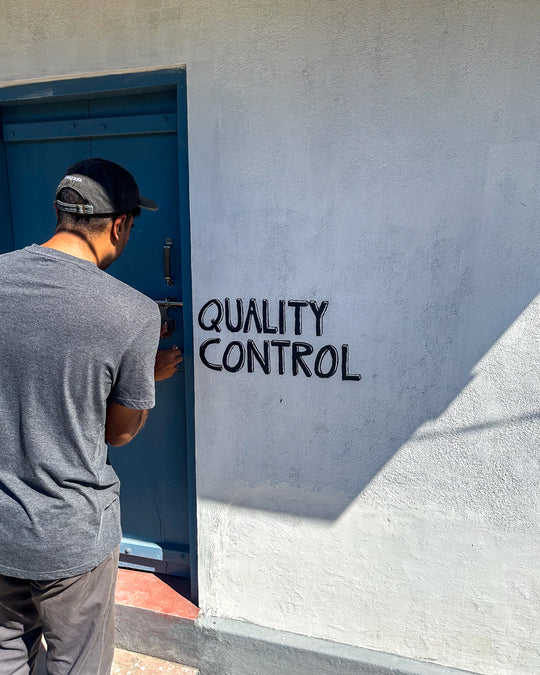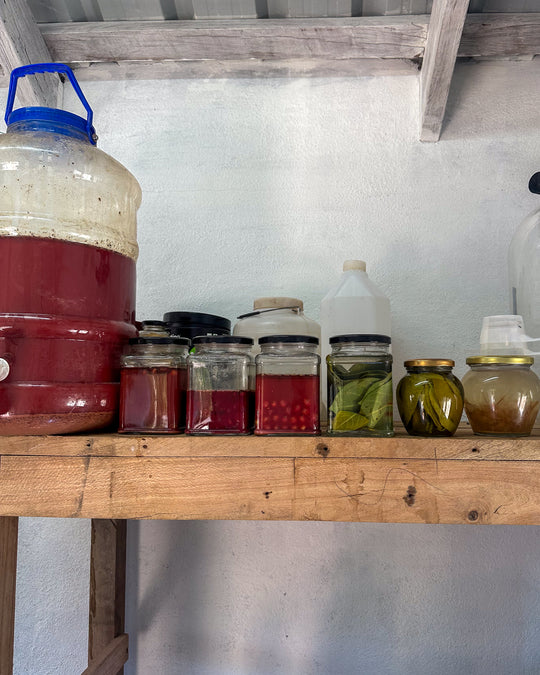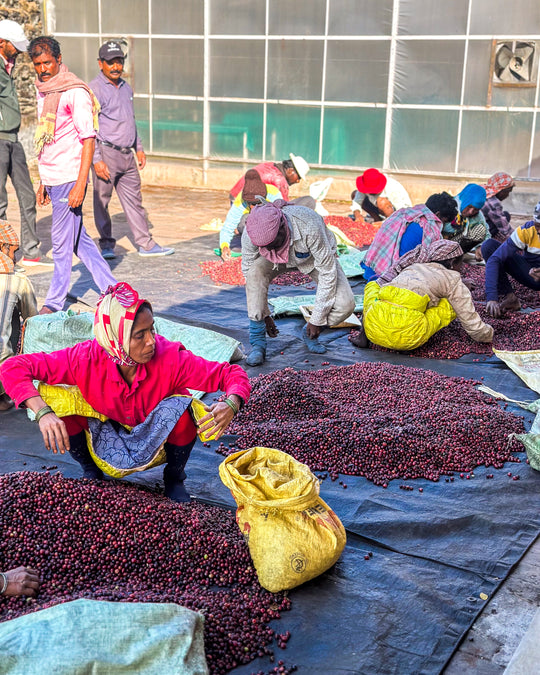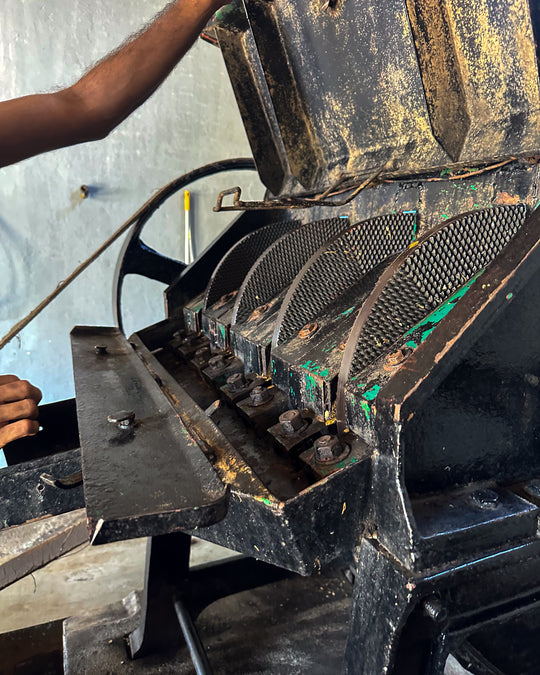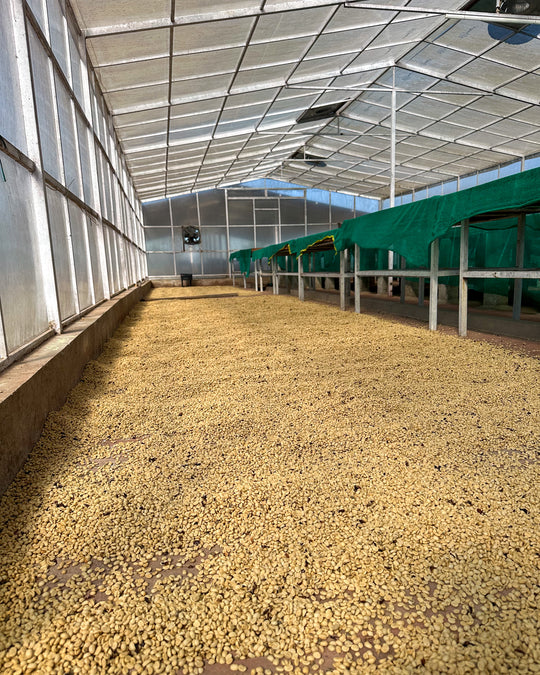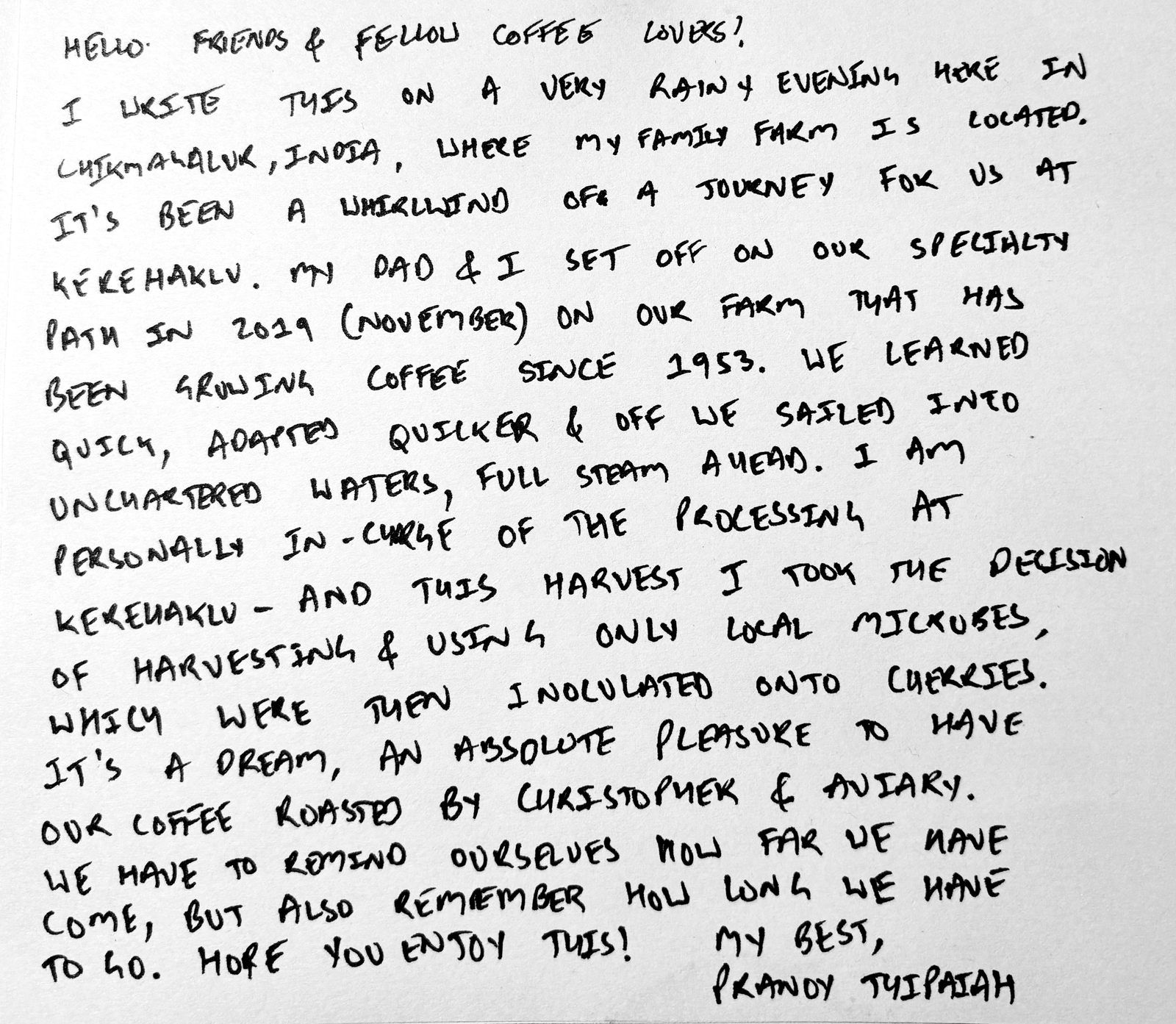016 - Kerehaklu
- Free U.S. shipping
2025 FREEZER SALE UPDATE (2025-12-17):
From Christopher: This coffee turned out to be the most polarizing release of 2025. For some, it offered a sweetness- and floral-forward optimistic presentation of the potential for Indian Arabica; for others, it fell too outside of the normal Aviary profiles: a bit less fruit-forward, a bit less integrated in the cup. I will take ownership of that: any successes that an individual coffee might have are all owed to the producer; any failures were mine. I'm hoping that in the freezer sale, I do a better job showcasing the brilliant work by Pranoy and Ajoy Thipaiah and execute a roast style that better suits this mosto-inoculated SL9.
The seventh coffee of our 2025 season comes from Chikmagalur, India, where Ajoy Thipaiah and his son Pranoy produce coffee under dense forest canopy at Kerehaklu estate. This washed Selection 9 microlot was processed using a fermentation inoculated with a mosto cultured from the farm's microflora and presents tropical and tangy with complex acidity and sweetness.
From Christopher: "While perhaps better known for its tea or spices, India's stature as a coffee producing country continues to grow—not for producing Robusta and Monsooned Malabar, but rather high-quality specialty Arabica. About a five hour drive west of Bangalore, toward the Arabian Sea, a group of coffee growers in Chikmagalur produce coffee that has, in recent years, caught the attention of quality-minded roasters in the U.S. and Europe: producers like Kerehaklu, who only began to focus on specialty coffee in 2019.
"After our collaboration for AVIARY#XX2, Pranoy and I were eager to find a new coffee to release under the Aviary moniker, so in February I boarded a plane to visit India for the first time.
"Kerehaklu doesn't seem like a place where high-quality coffee should grow; sitting at modest elevations of just 1100 meters above sea level at the foothills of the Mullayanagiri range in Southern India, temperatures in Chikmagalur routinely surpass 30ºC—far above the ideal temperatures for growing Arabica. Yet under the forest there, temperatures remain cool and comfortable for both humans and coffee.
"Agroforestry and Participatory Forest Management models of production are of particular interest to me (Aviary's earliest releases, from Finca Esperanza and Finca San Jerónimo Miramar exemplify this type of cultivation). Aroforestry can not only function to preserve local biodiversity but also sequester carbon and improve farmer incomes through diversification of products. But directly, as at Kerehaklu, agroforestry can also improve quality—by reducing temperatures, mulching the soil, and protecting from erosion of topsoil during heavy rains (such as during the monsoon season in India).
"As Pranoy wrote in a guest piece for my blog as a companion to this release, the focus at Kerehaklu is on the soil. the Thipaiah family converted the farm to a fully-organic and biological farm two decades ago and as a result, the biodiversity of the farm has grown. To honor and harness their native microflora, Pranoy made the decision to eschew all commercial inoculants for 2025, instead culturing 'mostos' that began with coffee cherry pulp, sugar and botanical materials collected from around the farm such as lime leaf, fig leaf and coffee blossoms. Overtime, these were fed with coffee cherry juice and pulp, creating distinct populations of microorganisms in each that Pranoy used as starters for fermenting coffee.
"Among its cultivars of Arabica, Kerehaklu grows Selection 9—a cultivar descended from an Ethiopian variety, Tafarikela (or sometimes Geisha and S.12 Kaffa), crossed with Hibrido de Timor—which was developed in India and has proven to be widely-adaptable with exceptional cup quality.
"For 2025, I wanted to continue to explore the intersection of plant genetics with human interventions and asked Pranoy to create a lot using SLN 9 for Aviary.
"During my visit, we cupped through three tables of samples from Kerehaklu's peak Arabica production, blind—in each set, I selected as my favorite coffees that turned out to be SLN 9 washed coffees processed using a method that Pranoy has been refining for Kerehaklu. One of those coffees, Lot E, became AVIARY#016 and presents in the cup with tangy, tropical, bright lactic-citric acidity and notes of tamarind, apricot, red apple and orange."
Read Pranoy's piece about India's coffee production, "We’ve been here all along."
This coffee was roasted the week of July 14, 2025 and again on December 18, 2025.
TASTING NOTES: Tangy, tamarind, apricot, red apple, orange
ROAST: Quite light, to accentuate the structured acidity of this coffee and present its tropical character as clean, ripe and juicy
ACIDITY: Tangy, bright, lactic-citric tropical acidity
FUNK: This is a clean, juicy coffee with no funk presenting during our evaluation
FOR FANS OF: Agroforestry, elephants, tigers and giant squirrels; underdogs; natural and 'low intervention' winemaking; sweet and acid-driven coffees
FARMGATE PRICE: Kerehaklu produced this coffee from cherry grown at the estate and self-exported, retaining 100% of the FOB price
FOB PRICE: $4.80 per lb initial payment, $1/lb second payment
LANDED PRICE: $6.00 per lb
Because Kerehaklu is the grower, processor and exporter of this coffee, the family captured 100% of the FOB price. Additionally, we offered to pay an additional second payment following export—which will be paid direct in exchange for "consulting services."
This lot was produced with cherry harvested from Kerehaklu on 2 Dec 2024. The costs associated with the production of this lot include its cultivation, farm management, harvesting, post-harvest processing, milling and sampling services via DHL as well as risk from currency conversion and financing.
In 2025, India continues to see its currency lose value against the USD, incentivizing exports, while its economy continues its rapid transformation into a technology, manufacturing and industrial economy. The new opportunities afforded by these sectors resulted in urbanization, pulling workers from rural positions to potentially higher-earning jobs in the cities. As a result, estates like Kerehaklu face labor shortages. During India's coffee boom of 1999, Kerehaklu may have had over 200 workers during the harvest, between full time and seasonal staff; in 2025, that number was just 37. While most producers pay per kilo of cherry collected, Kerehaklu pays by the day as a way to create work through a changing harvest cycle and incentivize slower, selective picking as a strategy to maximize quality.
In the backdrop of this export came two agents of chaos: a record-high C-market and a trade war. The C-market reached over $4 shortly before export and U.S. President Donald Trump imposed a unilateral tariff on all imports from India (including coffee) which may have suppressed demand and increased local pricing—decreasing the incentive to export. In order to honor our commitment to the Thipaiahs and ensure they received a fair price for exporting specialty-grade coffee, Aviary is providing a second payment for the coffee purchased.
Selection 9 coffee grown using organic methods in an agroforestry setting at 1,165 masl in the Doddagandi Lower block at the Kerehaklu Estate in Chikmagalur under canopy of avocado, fig and jackfruit; selectively hand-picked at peak ripeness on 2 December 2024; sorted; floated; pulped using a disc pulper and graded by density; fermented using a mosto cultured from microflora native to Kerehaklu through a sequential fermentation for 37 hours; washed; skin dried on two days on raised beds under shade; dried for 17 days in polyhouse on raised beds; turned every 45 minutes during drying; conditioned for 40 days prior to milling and export; imported by Osito Coffee.
I recommend resting this coffee for 3-5 weeks from its roasted date filter brewing and 5-6 weeks for espresso-style preparation (though you may wish to try it earlier to enjoy how the coffee changes and opens over time).
As filter, I prefer a ratio of 1:17 using low-agitation methods of extraction resulting in 22-23% EY.





